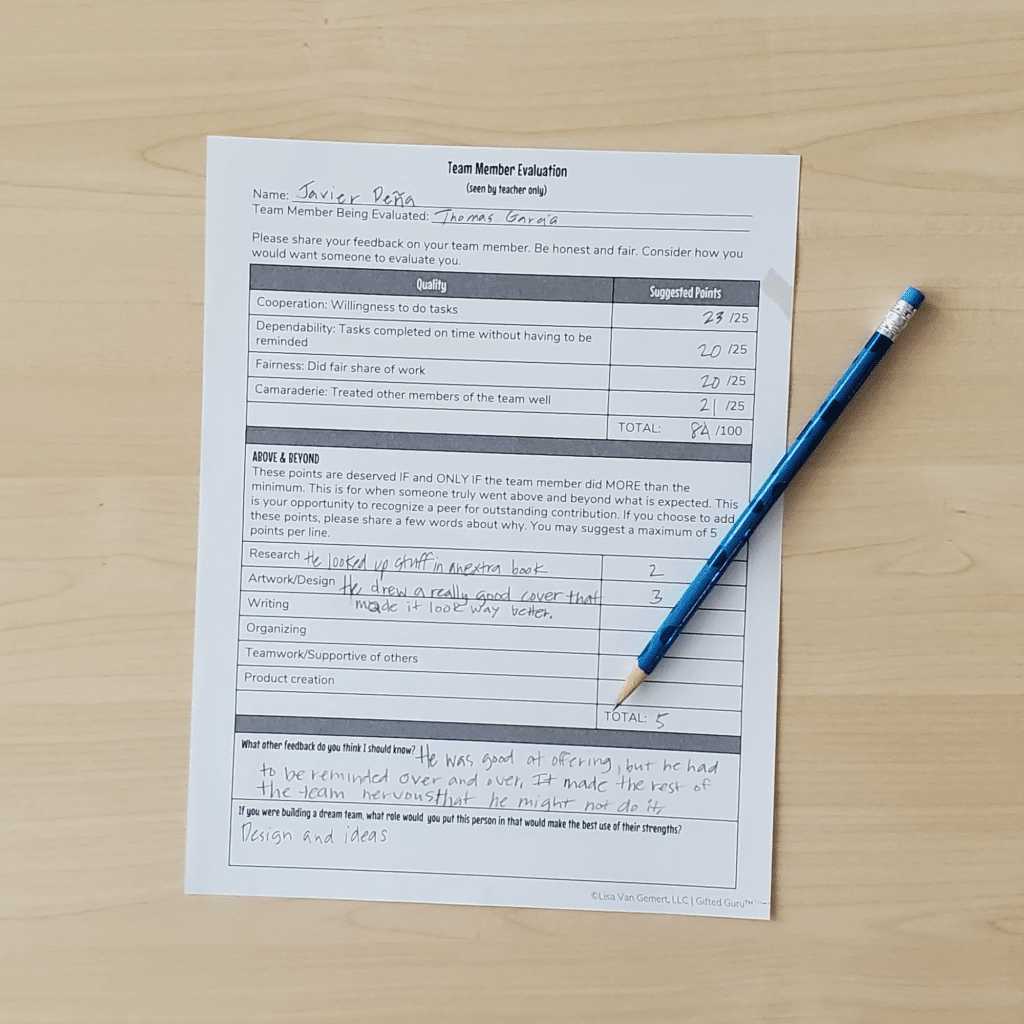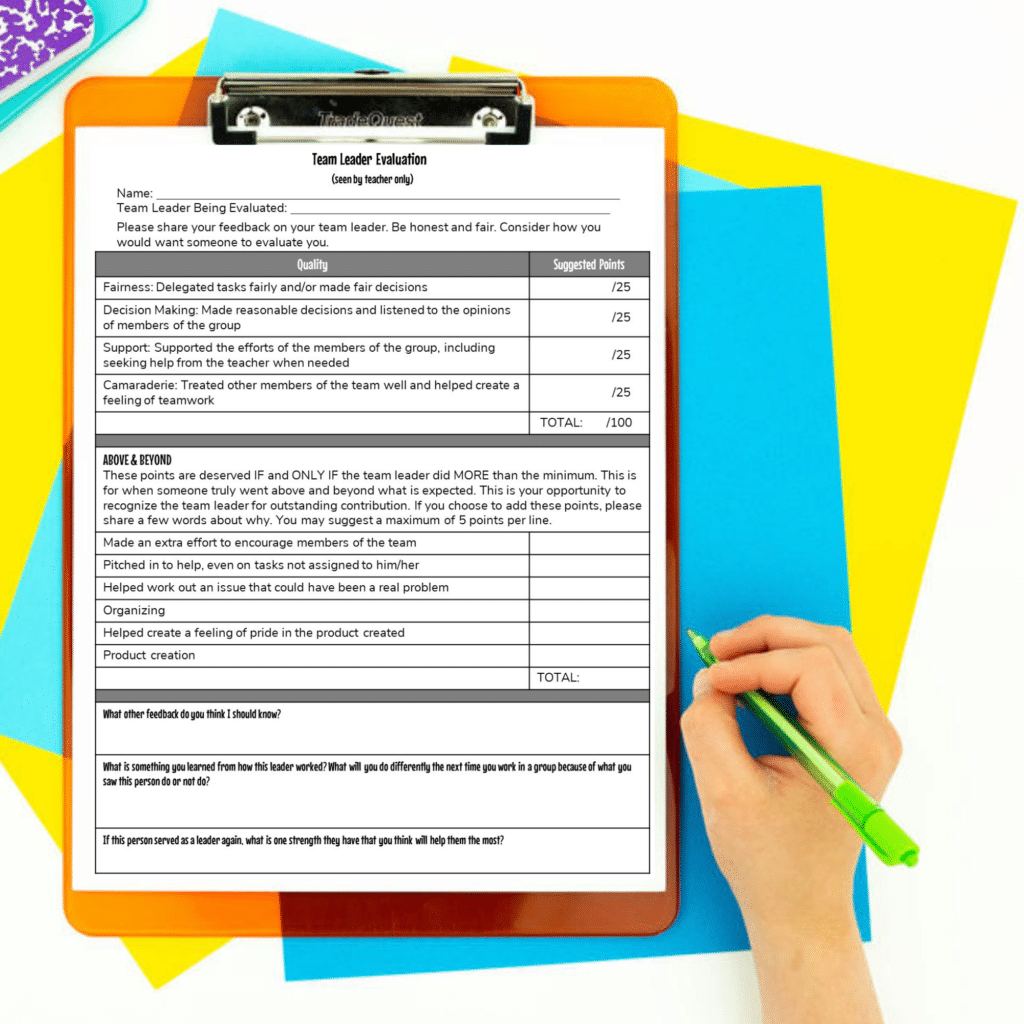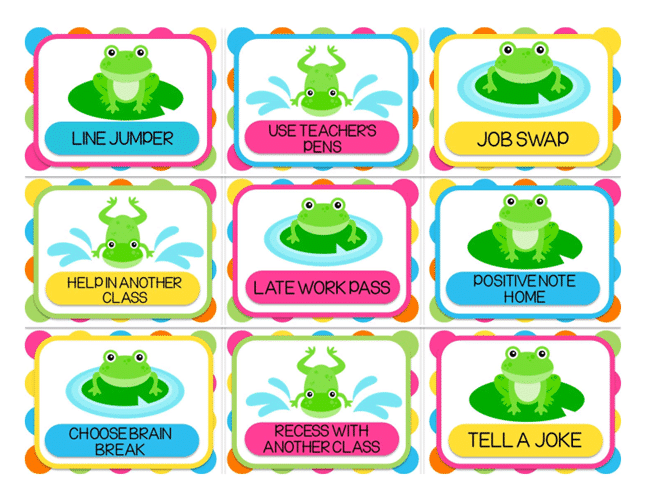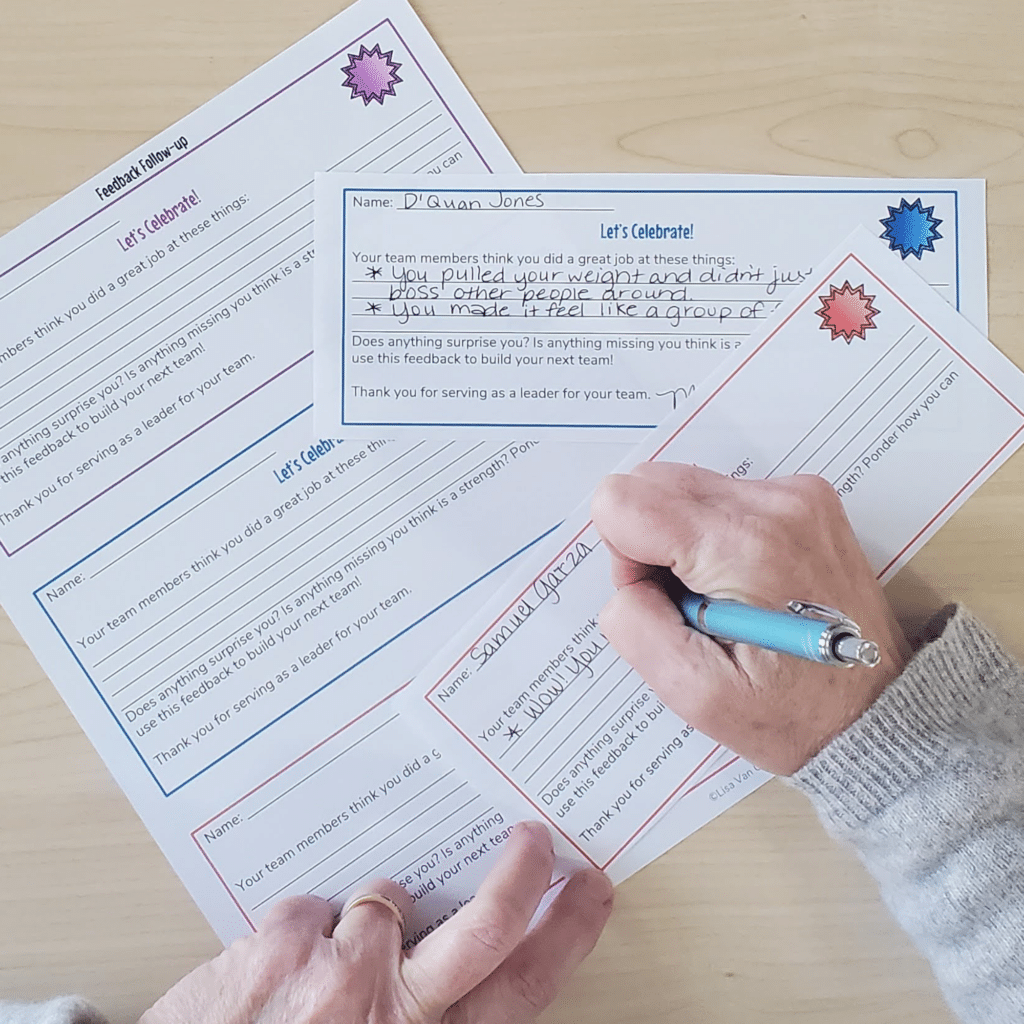If you want to do group work really well, you need to allow the students to give feedback on how they worked in groups, and you need to share that feedback in a loving, gentle way.
Here’s how.
Why you need to solicit feedback from students
You need to offer students the opportunity to share feedback with you about how the group functioned. You won’t know if you don’t ask.
Will you always get totally honest responses? Nope.
Is it better than nothing? Yep.
I’ve already written about student self-reflection on group work, and now I’m talking about getting feedback from students about how their peers functioned in the group.
When you allow students to reflect on how their peers performed, you gain insight into:
- instructional design changes you need to make
- what skills you still need to teach
- if there were dynamics you need to consider when evaluating the final product
- what interpersonal issues impacted the work product
- patterns that are emerging in individuals and groups
- progress that students are making
- and more (trust me: they’ll surprise you)
By asking them to evaluate another student, they also get the opportunity for more self-reflection. It’s hard not to think, “Hmm, I wonder how they’d rate me?”
Another important reason to gather this feedback is that students will often let small issues go during the work, knowing they will have opportunity to share that with you later. They don’t have such a strident need to point out issues in the moment. This often leads to issues resolving themselves, which is so beautiful.
The evaluations should be private
When a student evaluates another student, that evaluation is not shared with the evaluatee in its original form. I use a form to gather feedback, and then I take information from those forms and share general ideas from a strengths-based viewpoint.
Feedback that isn’t private will not be honest, and it can be hurtful. I found out early on that private feedback is the way to go.
How I get the feedback on the group
I use three forms for this. The first one is to get feedback from group leaders and members about other group leaders and members. It looks like this:
You’ll notice a few things about it:
- I’m sharing what I value in the group by what I’m asking them to evaluate.
- It’s very positive overall. While I let them rate their peers, notice how I ask about strengths and how I ask them what they learned from their peer. I like it when kids can realize, “I didn’t think this person did a good job, but I still learned something from them.”
- I add in some deep thinking by asking them to create a dream team and what they will do differently as a result of the experience. This isn’t just shallow.
- They do the simple number rating first, and then the deeper thinking. By doing it in that order, they’re ready to come up with the take-aways.
How I get feedback on the group leader
The group leader role is so, so critical. Friends, I often get it wrong. The student I thought would be a natural leader turns out to be far too passive or far too controlling or too…well, you get the picture. How do I find out? Sometimes it’s obvious, and sometimes I learn about totally crazy dynamics on the feedback form that I completely missed.
Here’s the form I use to get feedback on the leader from the rest of the group:
You’ll notice that the questions, while similar, are specifically about how the leader performed as a leader.
I share this form with the team leaders before they serve as leader the first time. That way, they know what I’m expecting of them. You may sometimes even overhear a leader ask, “Do you feel like I’m supporting you in that?” or “We should be really proud of ourselves” or “Do you feel like I listened to your concern about that?”
It will give you all the feels.
I just don’t think we tell students often enough what we really expect before we expect them to do it. That’s not just group work, folks.
Sharing the feedback
These forms are private. I keep them to look for patterns and growth, but they are not distributed, ever. I have used them with names whited out in meetings sometimes, but I am very diligent about protecting the identity of the writer. If you don’t, it’s useless.
I do two things with the forms every time:
1. I decide if I’m going to grant any bonus to anyone based on the feedback. That bonus is not actual points on the assignment because my state specifically prohibits grading so-called “soft skills” (which, as we know, are some of the most vital things we teach!). What I will do is make notes for citizenship grades or grant some of my world o’ goodness options (late work passes, treats, lunch with me, whatever I decide).
NOTE: If you’re looking for ideas, I have a whole printable of student coupons you can have. This is one of the pages of them (there are more). IT’s one of the things I give to people who join in the Gifted Guru Insiders (totally free).
2. I write up a little feedback to give to the student. This is a summary of the forms I got from multiple students. It’s short, and it only focuses on the positive.
I find that it builds relationships best when all they hear from peers is positive. There’s a vulnerability in this exercise, and I don’t want to exploit that.
If a student is getting a lot of negative feedback from multiple people over multiple opportunities, I will discuss it with him/her, obviously, but in general, we focus on what you’re doing right.
Wrapping Up
That’s how I do use peer feedback on group work! I hope you found it useful and that you’ll consider it. We’re doing more and more group work in class, so we need to get better and better at how to do it. This feedback is part of a terrific process that builds students’ ability to work in groups.
You May Also Like:
- How to Get Gifted Kids to Work in Groups
- Group Work Self-Reflection Questions
- Most Teachers Do Group Work All Wrong
- Fixing a Group Work Project









